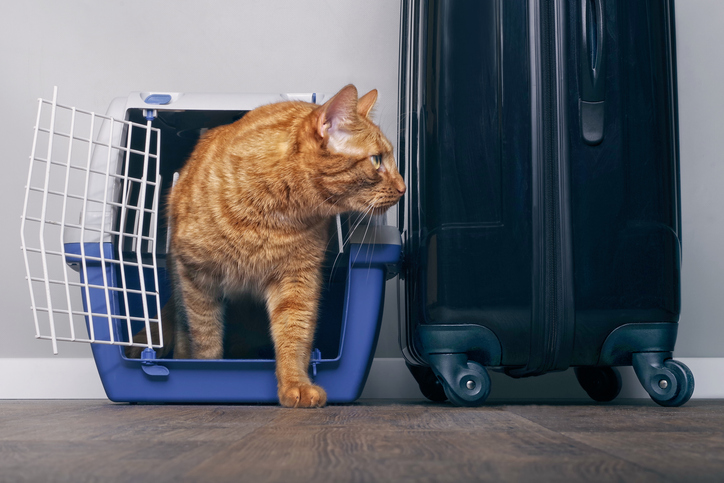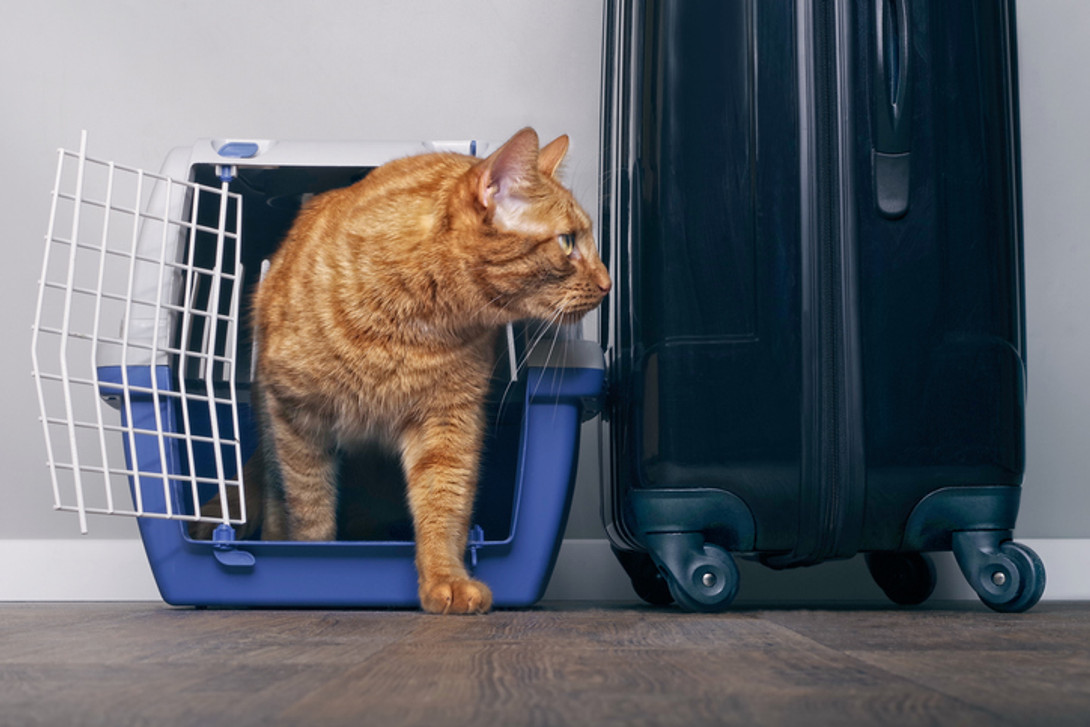
As the holiday season approaches, many families plan visits to see relatives. While including pets in these family trips offers joy and companionship, unfamiliar environments and travel can present challenges. At Positive Impressions, we want to help your veterinary practice guide your clients toward safer and more enjoyable journeys with their beloved pets. Here, we discuss essential tips to pass on to pet owners, ensuring both pet safety and peace of mind during holiday travels.
Secure Pet Travel With the Right Carrier
One of the most vital aspects of safe pet travel is having the proper carrier. Not only does a sturdy pet carrier protect animals in the event of an accident, but it also ensures they do not interfere with driving. Advise clients to select an appropriately-sized carrier and utilize crate training techniques to make sure their pet is comfortable within it. This preparation is crucial for any travel, irrespective of the mode or distance.
Air Travel Carrier Specifications
Airline travel presents its own set of challenges due to stringent regulations. It is important to educate clients on the need for FAA-approved, soft-sided mesh carriers as options differ from the hard plastic ones used for cars. Encourage pet owners to familiarize themselves with airline policies, which change frequently. Only small pets can travel as carry-on luggage, while larger pets must endure the cargo hold experience—this can be daunting for some pets due to noise and confinement.
Preparing a Pet for Air Travel
When your clients are considering air travel with their pets, setting realistic expectations is key. Airlines enforce varying restrictions, and it is important to determine these ahead of time. Desensitization to the frightening roar of airplane engines can reduce pet anxiety; we recommend playing recordings of airplane sounds to prepare them for flights. For some pets, a light sedative may be the answer to calming nerves during air travel. Encourage consultation with your veterinary practice for the best approach.
Keeping Pets Identifiable
The idea of losing a pet is terrifying and exponentially more so in unfamiliar territory. Emphasize the necessity of up-to-date information in the microchip database before the journey. This is especially crucial if international travel is involved, as the frequency of the microchip scanners may differ.
Inside the U.S., microchips are made to be read at 125 kHz, while the rest of the world uses chips that are read at 134.2 kHz. If the pet is crossing the border, it will need a 134.2 kHz chip.
A collar with a pet tag aids in quickly reuniting a lost pet with its family by providing contact information. Highlight that although rabies tags can serve the same purpose, accessibility issues during non-office hours may delay the process.
Essential Travel Kit for Pets
Advise clients to assemble a thorough travel kit for their pets for smooth and worry-free vacations. This kit should include basic first aid supplies such as bandages and antiseptics, accounting for a pet's increased curiosity in unfamiliar environments. Ensure that your veterinary practice's business card is part of this kit to facilitate emergency communication. Additionally, gathering a list of local veterinary services, along with critical contact numbers like the ASPCA poison control hotline, can expedite assistance in unforeseen circumstances.
Recognizing Toxic Foods and Holiday Hazards
The festive season is full of delights for humans, yet it can be perilous to pets. Educate pet owners on the potential dangers of holiday treats and decorations. Foods like chocolate, grapes, and heavy meats are culprits of common holiday health issues for pets. Similarly, decorative plants like poinsettias and Christmas lilies pose a threat of poisoning. Spreading awareness can drastically reduce holiday emergencies, ensuring that the holiday season remains joyful for families and their furry companions.
Trial Trips: Test Runs for the Real Journey
Finally, the most effective strategy to assess how well a pet adapts to travel is through trial trips. These short excursions enable owners to pinpoint potential issues and devise solutions before embarking on an extended holiday journey with the pet. Ensuring this proactive step can mitigate problems and contribute to a pleasant experience for everyone involved.
Making Seasonal Celebrations Special for Clients
The festive season offers the perfect opportunity to strengthen connections with clients. At Positive Impressions, we extend our services beyond typical veterinary reminder cards and memorial products. Our collection includes holiday greeting cards and paper seed ornaments that make a thoughtful gesture for clients. In addition, pet-themed calendars are appreciated year-round. We also provide custom printing options for business cards—both magnetic and standard—that are perfectly suited for first aid kits. Visit our latest specials to explore how we can help your practice make a lasting impact this holiday season.
By providing this valuable information, your veterinary practice can play an essential role in making pet travel safer and more pleasant for your clients. Through careful preparation and awareness, pet owners can experience the joy of holiday gatherings without compromising their pets' safety and well-being.

